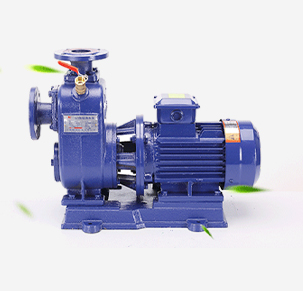English
- Afrikaans
- Albanian
- Amharic
- Arabic
- Armenian
- Azerbaijani
- Basque
- Belarusian
- Bengali
- Bosnian
- Bulgarian
- Catalan
- Cebuano
- Corsican
- Croatian
- Czech
- Danish
- Dutch
- English
- Esperanto
- Estonian
- Finnish
- French
- Frisian
- Galician
- Georgian
- German
- Greek
- Gujarati
- Haitian Creole
- hausa
- hawaiian
- Hebrew
- Hindi
- Miao
- Hungarian
- Icelandic
- igbo
- Indonesian
- irish
- Italian
- Japanese
- Javanese
- Kannada
- kazakh
- Khmer
- Rwandese
- Korean
- Kurdish
- Kyrgyz
- Lao
- Latin
- Latvian
- Lithuanian
- Luxembourgish
- Macedonian
- Malgashi
- Malay
- Malayalam
- Maltese
- Maori
- Marathi
- Mongolian
- Myanmar
- Nepali
- Norwegian
- Norwegian
- Occitan
- Pashto
- Persian
- Polish
- Portuguese
- Punjabi
- Romanian
- Russian
- Samoan
- Scottish Gaelic
- Serbian
- Sesotho
- Shona
- Sindhi
- Sinhala
- Slovak
- Slovenian
- Somali
- Spanish
- Sundanese
- Swahili
- Swedish
- Tagalog
- Tajik
- Tamil
- Tatar
- Telugu
- Thai
- Turkish
- Turkmen
- Ukrainian
- Urdu
- Uighur
- Uzbek
- Vietnamese
- Welsh
- Bantu
- Yiddish
- Yoruba
- Zulu
Telephone: +86 13120555503
Email: frank@cypump.com
Nov . 24, 2024 23:36 Back to list
Innovative Peristaltic Pump Solutions for Efficient Slurry Transport and Handling
Understanding Peristaltic Slurry Pumps
Peristaltic slurry pumps play a crucial role in various industrial applications, particularly in transporting viscous materials and abrasive slurries. These pumps operate on a unique principle that sets them apart from traditional pumps, offering specific advantages and functionality that cater to demanding pumping needs.
Basic Operating Principle
At the core of a peristaltic pump's operation is its design, primarily consisting of a flexible tube housed within a circular casing. The pump works by creating a peristaltic motion—the same motion observed in the human digestive system. A rotor with rollers or shoes compresses the flexible tube as it rotates, creating a vacuum that draws the slurry into the tube. As the compression continues, the slurry is propelled forward, effectively moving it through the system. Once the rotor passes a point, the tube returns to its original shape, maintaining a continuous flow of material without backflow.
Advantages of Peristaltic Slurry Pumps
One of the most significant advantages of peristaltic pumps is their ability to handle abrasive and viscous fluids. The flexible tube can endure tough conditions, making it suitable for transporting materials like slurries containing grit, sand, or other solid particles. Additionally, since the pumped medium only comes into contact with the tubing, the internal components of the pump remain protected from wear, thereby extending the pump's lifespan.
peristaltic slurry pump

Another key benefit is their self-priming capability. Peristaltic pumps are able to generate suction without requiring a significant amount of time to prime, allowing for efficient operation even in applications where the fluid source may be below the pump inlet. This is particularly advantageous in mining and wastewater management industries, where fluid characteristics can vary.
Applications in Industry
Peristaltic slurry pumps find extensive use in multiple sectors, including mining, water treatment, food processing, and chemical manufacturing. In mining, these pumps efficiently transport slurries for mineral processing and tailings management. In water treatment facilities, their ability to handle thick sludge makes them ideal for pumping clarified effluent or thickened waste materials.
In the food industry, hygienic models of peristaltic pumps are employed to handle various liquid food products, ensuring sanitary conditions while preventing contamination. Their gentle pumping action minimizes shear stress on sensitive materials, preserving the integrity of the product.
Conclusion
Peristaltic slurry pumps are invaluable tools across various industries, thanks to their unique design and efficient operational capabilities. By leveraging their advantages, industries can manage challenging materials effectively while maintaining high standards of reliability and performance. As technology progresses, the development of advanced materials and designs for peristaltic pumps is likely to further enhance their application and efficiency, making them an even more critical component in modern industrial processes. Whether in mining, wastewater treatment, or food processing, these pumps continue to pave the way for effective and innovative solutions to fluid handling challenges.
-
ISG Series Vertical Pipeline Pump - Chi Yuan Pumps Co., LTD.|Advanced Hydraulic Design&Energy-Efficient Solutions
NewsJul.30,2025
-
ISG Series Vertical Pipeline Pump - Chi Yuan Pumps Co., LTD.
NewsJul.30,2025
-
ISG Series Vertical Pipeline Pump - Chi Yuan Pumps Co., LTD.|energy-efficient fluid handling&industrial durability
NewsJul.30,2025
-
ISG Series Vertical Pipeline Pump - Chi Yuan Pumps | Advanced Engineering&Industrial Efficiency
NewsJul.30,2025
-
ISG Series Pipeline Pump - Chi Yuan Pumps | High Efficiency, Energy Saving
NewsJul.30,2025
-
ISG Series Vertical Pipeline Pump-Chi Yuan Pumps|High Efficiency&Reliable Performance
NewsJul.29,2025










